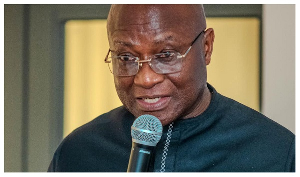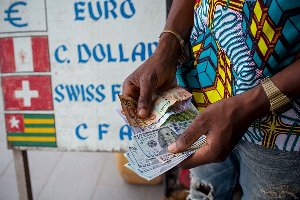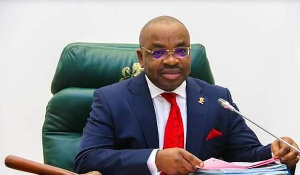My attention was drawn to Diasporian News of Thursday, 30 December 2010
in which The British High Commission under the title “UK-based Ghanaian jailed
for operating 'forgery factory” portrayed Dominic Owusu-Ansah a 40-year-old
Ghanaian national a criminal under UK’s Fraud and Identity Cards Act who has
been handed a four-year jail term in the UK following the discovery of a
forgery factory in Milton Keynes.
I have three problems with this British High Commission story. First,
the story unjustifiably links Dominic Owusu-Ansah to all kinds of crime the
story did not claim he committed.
Second, the story does not make clear that nationality in UK immigration
law is a code for race and in usual racist stereotypical fashion links a black man
with gangsters, illegalities, smuggling, fraud and crime. Third, the story around
Dominic Owusu-Ansah in
linking UK’s Fraud and Identity Cards Act and immigration crime is historically
partial and without historical context. These
are why I am writing a rebuttal.
My object is that you will understand the illegitimate historical
context of this crime and enjoy a more balanced perspective.
A number of organisations in the UK including Runnymede, London
European Research Centre and the London Metropolitan University amongst others
organised a conference “Crossing Borders: the legacy of the Commonwealth
Immigrants Act 1962” on 15/16 November 2002.
Dr A Sivanandan delivered the closing speech on British
State racism which sheds light on how
someone like Dominic Owusu-Ansah a man who simply wanted to make a living in
post-colonial Ghana and UK ends up
committing a crime because Dominic wanted to help his fellow nationals (read
race) survive by making a living.
It all started according to Dr. Sivanandan over 50 years ago when post-war
Britain
was in dire need of black labour. UK passed the British
Nationality Act of 1948 which made us all including Dominic Owusu-Ansah British
citizens. The Commonwealth Immigrants
Act of 1962 followed which said, in effect, that Britain needed our labour, not us.
It was the first step towards dismantling our
citizenship. It is the first bit of UK’s racist
immigration legislation; UK State racism was born. Racism was thus popularised and
institutionalised in the UK
in legislation, in government, in criminal justice.
The fight against this institutional racism has been ongoing. It was layered within
globalisation which Governments
helped to penetrate Third World Countries into further dependency through
so-called binding aid. This invasion of
Third World countries and of Eastern Europe (once Communist Europe) led to
repressive regimes, to dictatorships, social disintegration, internecine wars -
which, in their turn, displaced people and brought them as so much debris to
the shores of Europe.
The state under globalisation, Dr A Sivanandan continues, under the
free market system, under deregulation, privatisation, the move from social
welfare to social control was more concerned to serve multinational
corporations and big business than the poor and deprived of our societies. Thus the
strategy of successive home
secretaries in the UK is that
the repressive legislation that is being put forward against refugees and
asylum seekers and against the deprived generally is on behalf of the UK populace.
Following September 11 everybody who was
foreign, especially non-whites and Muslims and Arabs in particular, were, per
se terrorists and are guilty till proven innocent.
Dr. A. Sivanandan asserted “Racism never stands still. It changes
shape, size, contours, purpose, function, with changes in the economy, the
social structure, the system and, above all, the challenges, the resistances,
to that system. The racism we are faced
with today is not the racism we faced 40, 50 years ago”.
This is the racist strategic immigration game the British High
Commission is playing by publishing the story along with the picture of Dominic
Owusu-Ansah.
In the days of the British Nationality Act of 1948 there was no need
for the Dominics to forge identity papers because no laws forced them to in
order to get work and live in the UK.
Over the years till today our UK British Citizenship has been dismantled
through successive racist immigration legislation and we are labelled
criminals. Further articles will lay out
the full racist legislative story should The British High Commission deny and
attack me UK replaced racist colonialism
in post-colonial Ghana with racist immigration within UK against
Ghanaians.
The British High Commission after helping the unlawful overthrow of
The Government of Ghana shortly after passing its racist immigration law,
backed globalisation. UK’s state
racism went hand in hand with globalisation after the overthrow of the Pan
African Consensus of 1945 through the murder of progressive leaders and the
sponsoring of coups. In trying to make a
living like Dominic Owusu-Ansah the historic racist experiences we have
suffered in the UK have included our children bussed, black women examined for
virginity at ports of entry, being beaten up in police cells, spat upon, degraded
on the streets of UK, being burnt out of our homes, being deported at the
midnight hour without recourse to family, or friend or lawyer. Many will recall the
recent dehumanisation
and deportation of Ama Sumani.
This is some but not all the historical context that I want Ghanaians
to understand the British High Commission story. By black in this article I mean
both African
and Asian. I want Ghanaians to
understand that Ghanaians who come to the UK do not come to commit crimes like
people trafficking and sham marriages as the story was indirectly
implying. Ghanaians come to survive but
are forced into crime by racist immigration laws. The real crimes are the racist
laws that
create criminals who today underpin the British economy in its powerhouse in
London/South East as cleaners, night workers etc. It is this realisation that
the Liberal Democrats in the UK Coalition Government attempted to rectify
through the provision of an Amnesty, if elected into office, to all the people
that Dominic Owusu-Ansah was trying to help.
It is this initiative that the Conservatives in the Coalition
vetoed. The Coalition’s choice of
keeping people like Dominic Owusu-Ansah and those he is helping in crime is how
I want you to understand what Immigration Minister Damian Green is saying. Dominic
Owusu-Ansah is to be deported long
after blacks suffered horrendous racism that was visited on them until they
fought back and said, 'We are settlers not immigrants: we are here to stay and
here to fight'. The fight for justice is
clearly not over yet.
What you can do is go online at the foreign and commonwealth office
“http://www.fco.gov.uk/en/ministerial-feedback-form”
and fill in the feedback form calling for an “Amnesty and end to criminalising
Ghanaians as illegal immigrants under racist immigration laws.”
Background on Story:
The story said that Dominic
Owusu-Ansah who appeared before Huntingdon Crown Court on December 22, 2010
where he admitted the charges was among four people arrested and is to be
deported at the end of his sentence.
According to the story from the
British High Commission Officers from the UK Border Agency’s South East Region
Immigration Crime Team discovered dozens of fake documents such as blank visas,
passports and birth certificates when they raided a property in Oldbrook on
October7, 2010.
The story even quoted the Chief
Immigration Officer Jo Howorth from the UK Border Agency’s South East Region
Immigration Crime Team who linked “significant criminal enterprise” to “false
identities” that “help people work, claim benefits or stay illegally in the UK.”
I noted with careful dismay how in the story the Immigration Minister
Damian Green stressed UK Border Agency campaigns against immigration crime and
against people and gangs who have been abusing the system through sham
marriages, illegal working, people smuggling and document fraud.
Note: Kwami is a member of CPP and can be contacted on 07904-841-544
or on email at kwami_agbodza@yahoo.co.uk.
"Love what you do and, no matter how tough it gets, remember why you are
doing it - the cause. It's during the tough times that you really get to
prove your worth." (by Annie Kelly)
Opinions of Wednesday, 5 January 2011
Columnist: Agbodza, Kwame


















